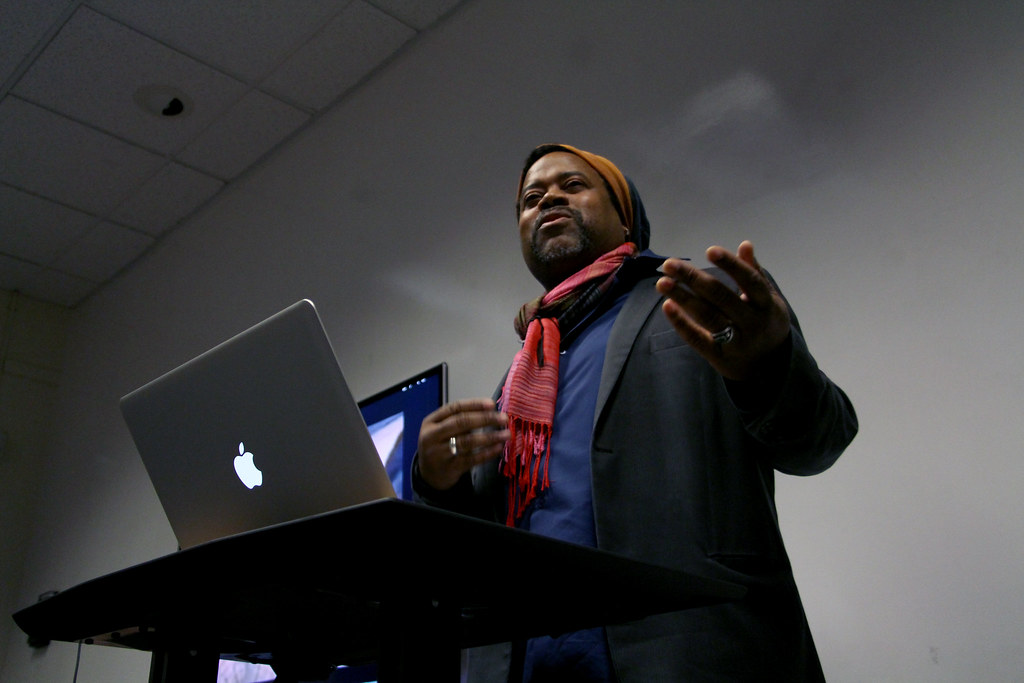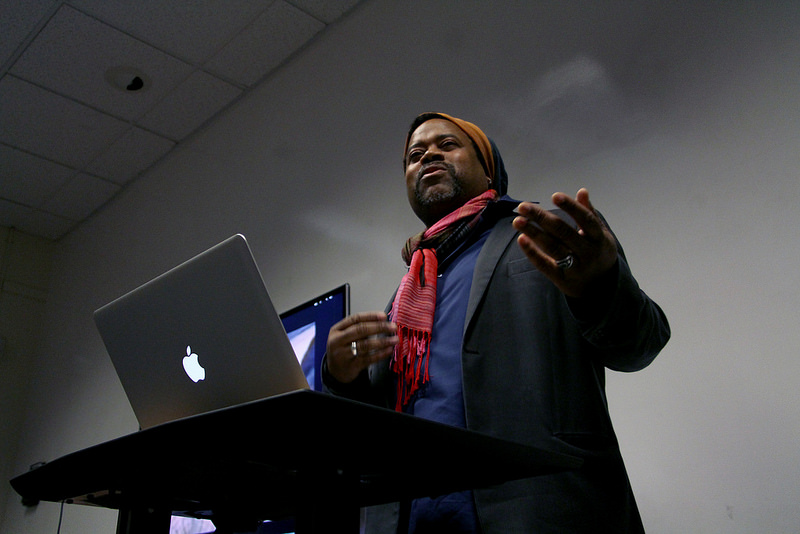
In celebration of Black History Month, SF State’s College of Ethnic Studies featured Greg Tate, an African-American journalist and musician, as a speaker to 65 students and five faculty members about Afrofuturism and black science fiction.
On Monday, Kenneth P. Monterio, dean of the College of Ethnic Studies, introduced Tate to the audience, and added that SF State is the only university to have a devoted ethnic studies department in the country.
Tate read from his poem “What is Hip-Hop?” which covers the hip-hop world, the perception of the world on black culture and the black community itself.
Much of Tate’s teaching covers Afrofuturism, the movement that puts people of African descent at the center of futuristic and science fictional ideals in the music world today.
He spoke about the afrofuturism of African-American musicians such as Miles Davis, James Brown, Sunrise and Jimi Hendrix. According to Tate, these individuals worked with music in the 1970s in a way that no one else was at the time, and explained how artists take samples of that music and place it in their own songs today.
“(Afrofuturism connects) the dots of people, cross literature, film, music, politics and historical events in the black community,” said Tate. Students were shown a slideshow of various images, from African-American music and political figures to ancient African art.
Tate began his career as a journalist in the early 1980s, writing for the Village Voice as a columnist until 2005. He wrote about many communities that didn’t have a voice, such as the black or gay communities.
Later in 1985, he formed the Black Rock Coalition with lead singer and friend Corey Glover.
“(The group was formed) to entice racism in the music industry (and give) a platform for them,” said Tate.
Since 1999 Tate has been a part of the Burnt Sugar, the Arkestra Chamber, where he conducts a band of up to 35 members.
Later in his career, he wrote for Vibe and The Source magazines as a hip-hop writer, critiquing hip-hop artists of the 1980s and the 1990s.
Imani Cezanne, an Africana studies major, said she attended the event because her professor offered extra credit to anyone who went. Cezanne said that although she knew nothing about him, her friends did and encouraged her to attend.
“(Having) exposure to more leaders in the black studies movement (is important because) these are people who know what they are talking about,” said Cezanne.
“I didn’t know much about Tate, only a brief summary of him, but I’ve learned (that) he came from a journalistic music (background) and about how big African culture has become,” said Bianca Gamboa, a freshman sociology major. Gamboa attended the event because it was also assigned as extra credit for her hip-hop ethnic studies class, and because it seemed “pretty interesting.”
Tate is currently working on a novel titled “Altered Spades,” which focuses on the 1960s revolution of scientific warfare.
After questions from the audience, the night closed with Department Chair of Africana Studies Dorothy Tsuruta, who thanked Tate for coming out and shared her own passions with the African-American community.







